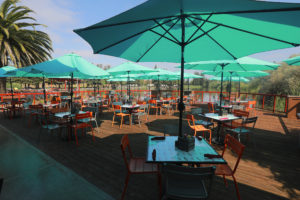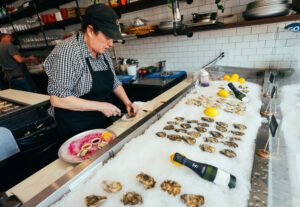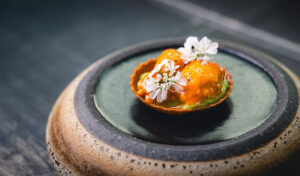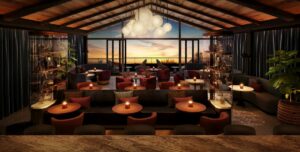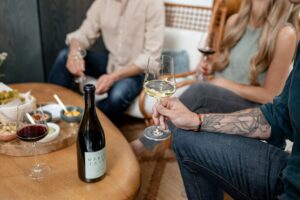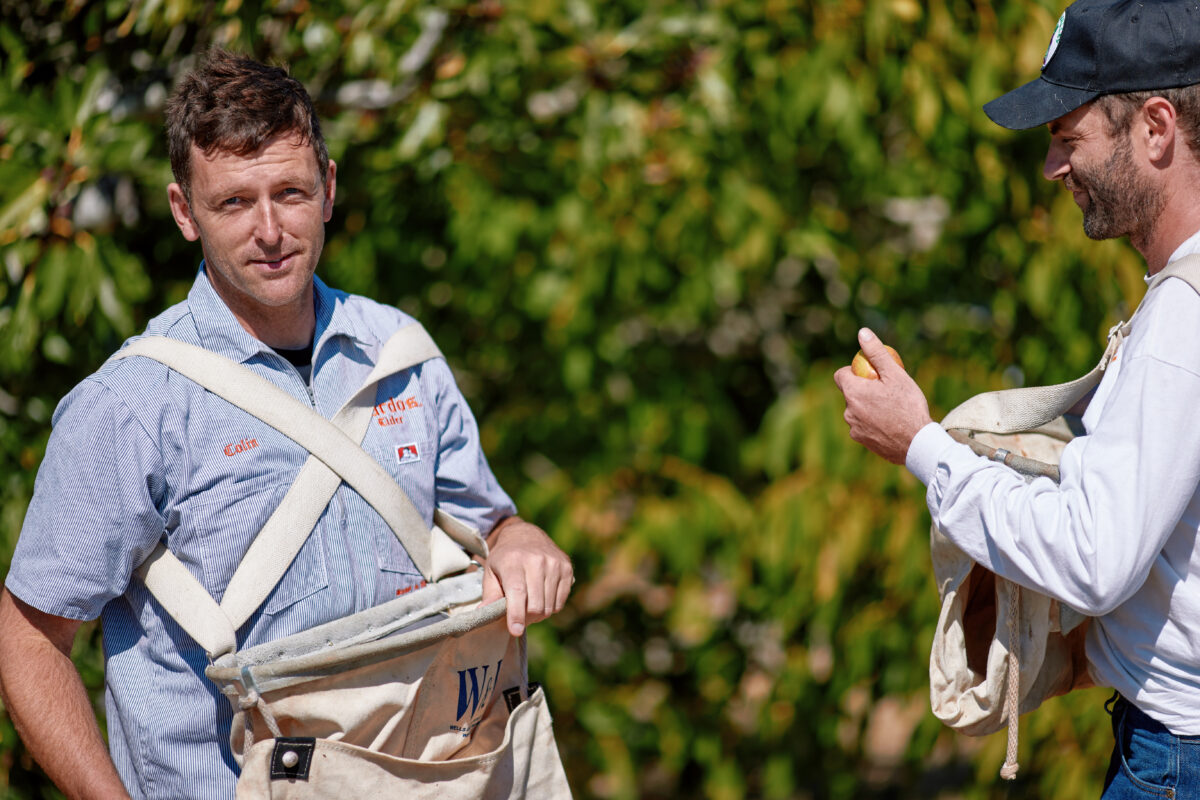Following the backroads from west Sonoma up to Humboldt County, the saga of the North Coast’s long-forgotten apple orchards unfolds like a novel of lost treasure. Deep in the woods, clusters of apple trees lie buried beneath overgrown scrub oak forests or overtaken by wild blackberry brambles.
You could write a book about it—or, you could make cider from the fruit, and let the juice do the talking. That’s what Aaron Brown and Colin Blackshear have chosen to do at Bardos Cider.
Equally intrigued by the thrill of the hunt and the history of the once thriving apple industry, they’ll spend days clearing an abandoned orchard just to sit and talk with the owner about its past. They linger in the middle of the trees to soak up the magic—a phrase they often come back to. Then they might wait another year or two before harvesting and even longer to age the cider in barrels.
The ongoing narrative, whether fermented or written down on the record, is never far below the surface.
“We’re sort of rewriting the script as we go,” Blackshear says, as he drives along a winding west county backroad touring derelict orchards the two have discovered and helped revive.
It’s a telling line—both Brown and Blackshear are also filmmakers who met at Sonoma Valley High School in the mid ’90s.
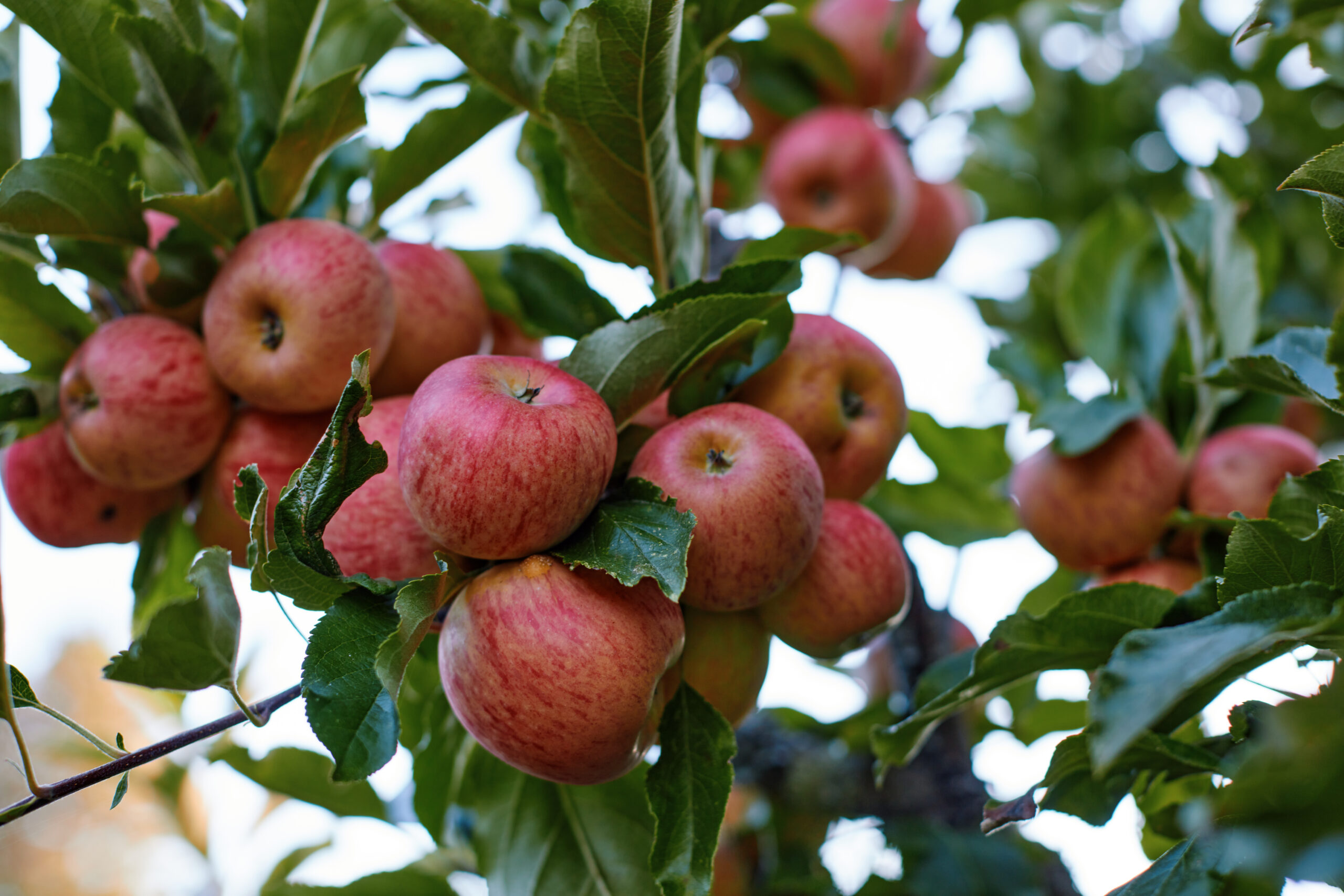
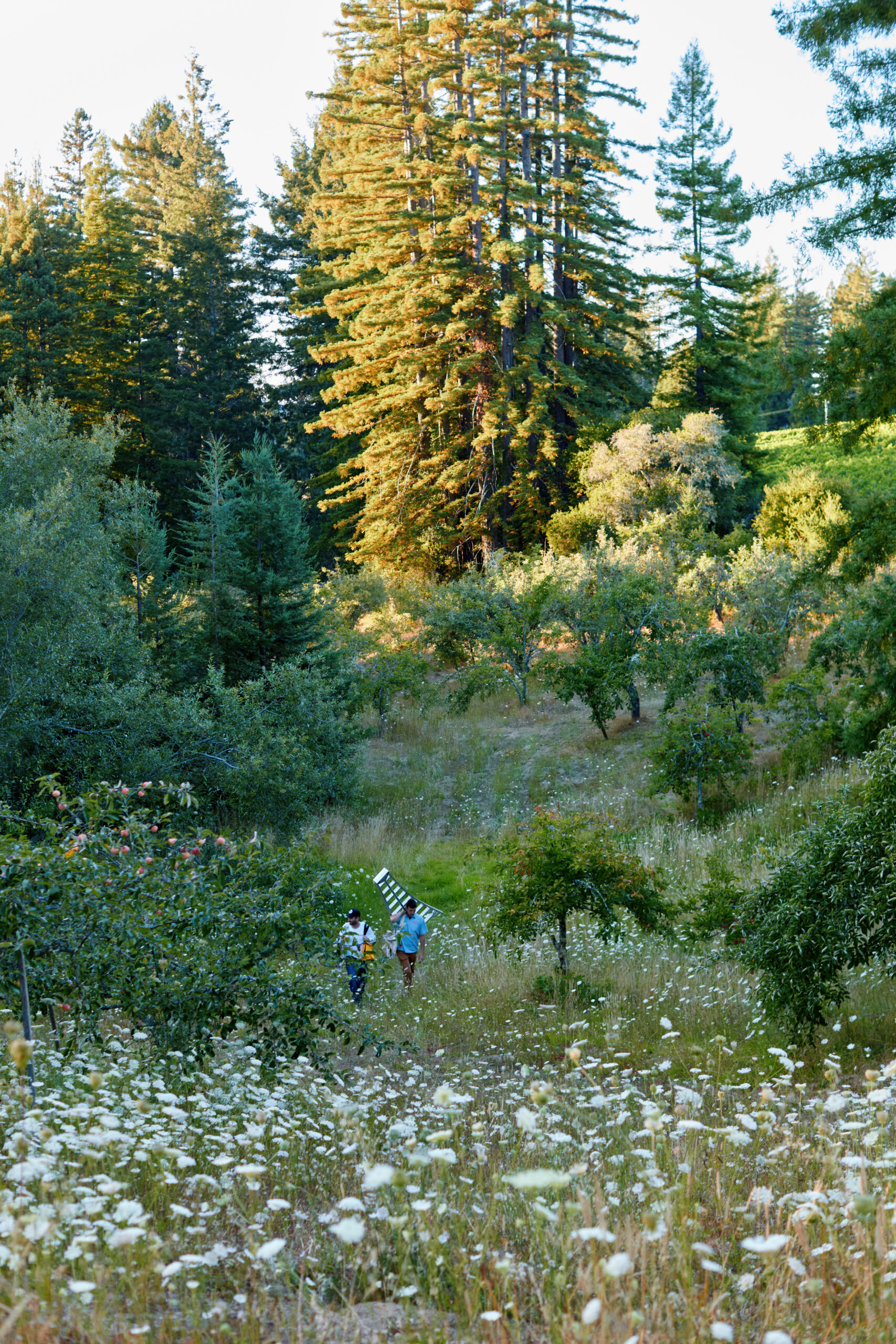
Brown was the first of the two to cultivate a cider obsession. He had been working in England on a TV commercial when he got turned on to farmhouse ciders, which were different than anything he’d ever tasted. After filming wrapped, he lived for a winter in rural Yorkshire, learning the old-world art from local cider makers and accumulating a hydro press, food grinder, and several barrels. (Brown would later learn through genealogical research that his father’s side of the family is from the same region of England where he first learned to make cider.) Back in Los Angeles, he made a homemade press with a bottle jack and a garbage disposal, concocting cider out of apples bought from SoCal orchards, later making another batch at his mother’s house in Sonoma.
After reconnecting over that garage cider, Brown and Blackshear launched Bardos in 2017 with a simple mission: to make cider with feral apples and no added yeast or sulfites—and bottle it in reused Mexican beer bottles (yes, those fat 40oz-looking caguamas named after sea turtles).
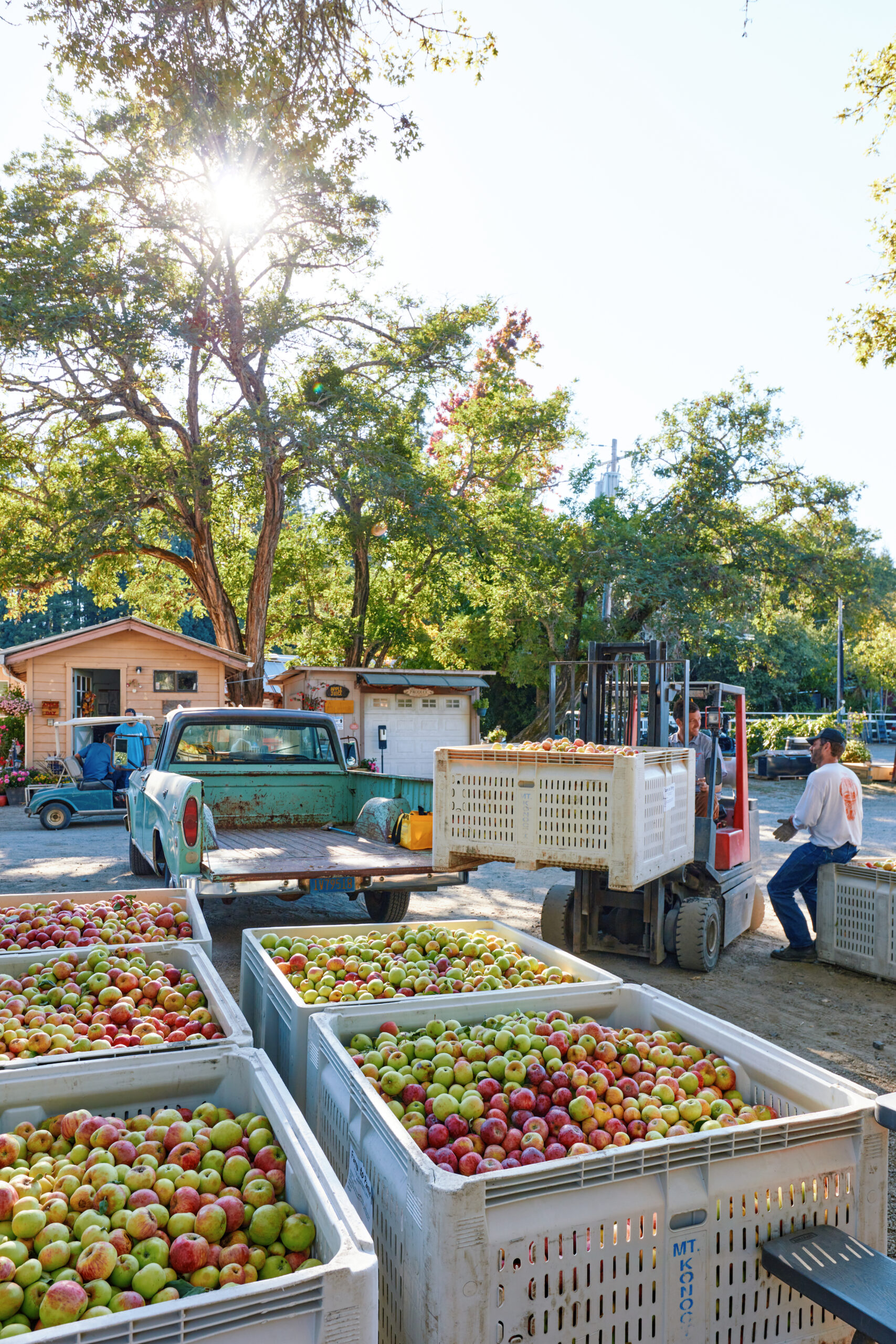
It seemed like the most DIY of business plans —harvest free, foraged fruit, ferment it with the least amount of input, and bottle the juice in free glass that Brown scavenged in Mexico and drove across the border.
Except that it turns out it’s illegal to reuse glass in this country, no matter how much you sterilize it. It’s also illegal to list vintage, varietal, and appellation on cider bottles, so Blackshear and Brown have come up with a secret code on their labels, a decoder-ring style set of symbols to signify if it’s made with fruit from 100-year-old Gravensteins, say, or macerated five days on skins, or aged for nine months.
What started with two barrels in a garage evolved into to a small vintage of cider with Preston Farm and Winery in Dry Creek (bottled under the Preston label), then flowed through Old World Winery in Fulton for two vintages before moving on to shared space at RD Winery in Napa, and finally landing at Carboniste in Sonoma. Last year, they made around 4,500 cases.
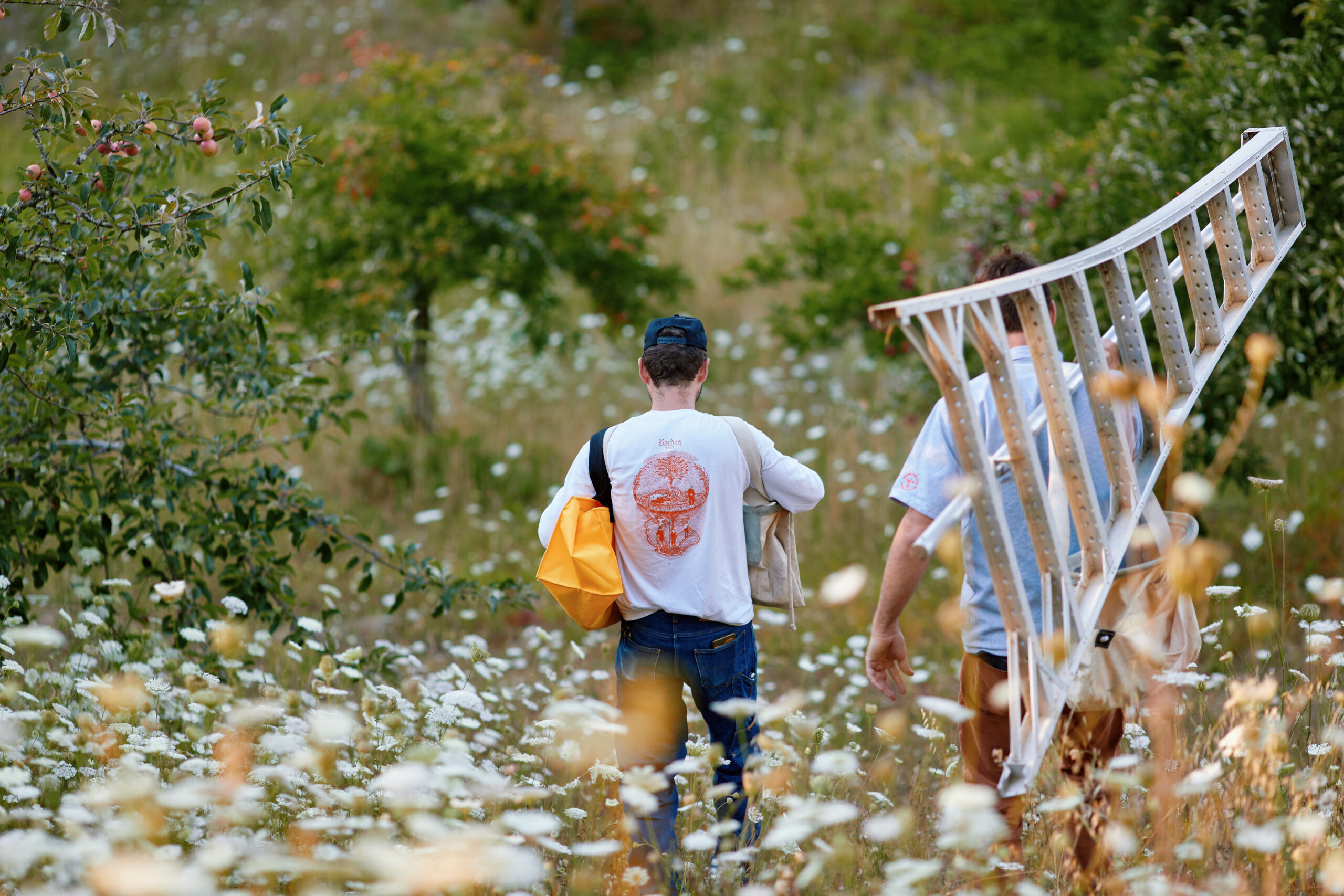
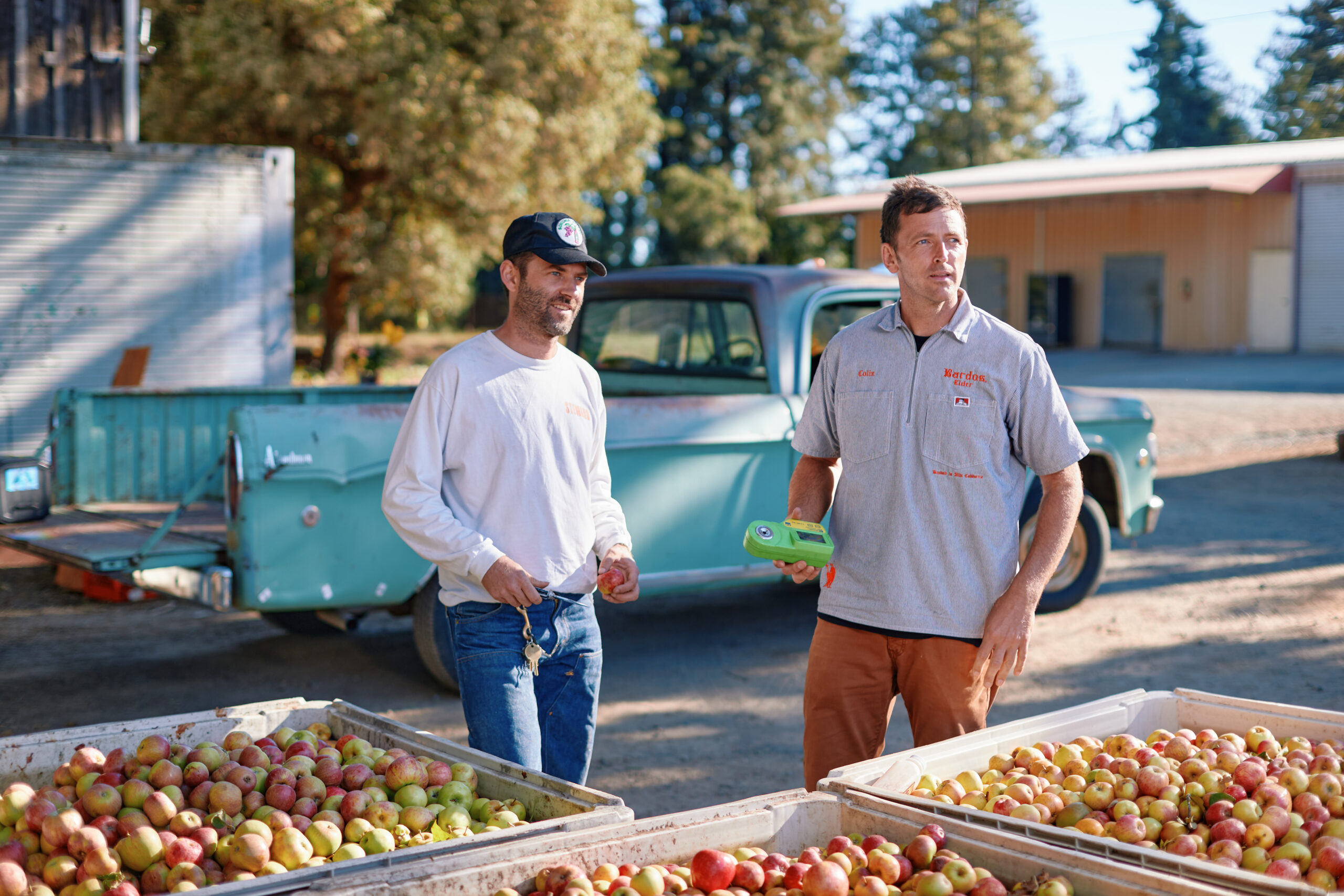
But back to the script and the rewrites. “The story has kind of shape-shifted,” says Brown, pausing to point out a recently uprooted orchard out the window. “It’s more about what’s happening now, about dry-farming and using what’s available in your own backyard, and no added supplementation.”
It’s developing beyond just two friends making hard cider, into the realm of two guys on a mission to save old orchards—a noble cause when you consider that in the 1940s, there were as many as 15,000 acres of apples farmed in Sonoma County. Now there are maybe 2,000 acres left, depending on how many have been cleared that month for grapes.
Offbeat characters in the Bardos passion-project-turned-business-endeavor include a guy named Yeti, who they’ve never seen wearing shoes and reminds them of a wizard or “a tree whisperer.” A regular volunteer at Luther Burbank’s Gold Ridge Experiment Farm, Yeti also introduced them to the owners of Grand View orchard outside Sebastopol, where they’ve harvested apples for cider.
Darek Trowbridge, the guru at Old World Winery, where the pair made cider in the business’s early days, taught them a minimal “hands-off” philosophy, something he calls “shepherding.” In making natural wines and cider, you have to take a leap of faith with your fruit, he explains: “I take it away from coyotes as best I can, but they’re gonna meander and go where they’re gonna go.”
And Mike Zarras, owner of Apple-A-Day press at Ratzlaff Ranch in Sebastopol helped introduce Blackshear and Brown to orchard owners sitting on fruit that would otherwise go to rot. During peak harvest, Zarras presses as many as 100 tons of apples a week. Yet every year, more apple trees disappear. “Last year, there was an orchard right down the road that was ready for harvest and that’s when they tore it out—right at harvest time,” he says. Zarras is also willing to rejigger his press so the Bardos juice can undergo a unique maceration process, where it sits with skins for a few days, something he hasn’t done for any other cider makers in the area.
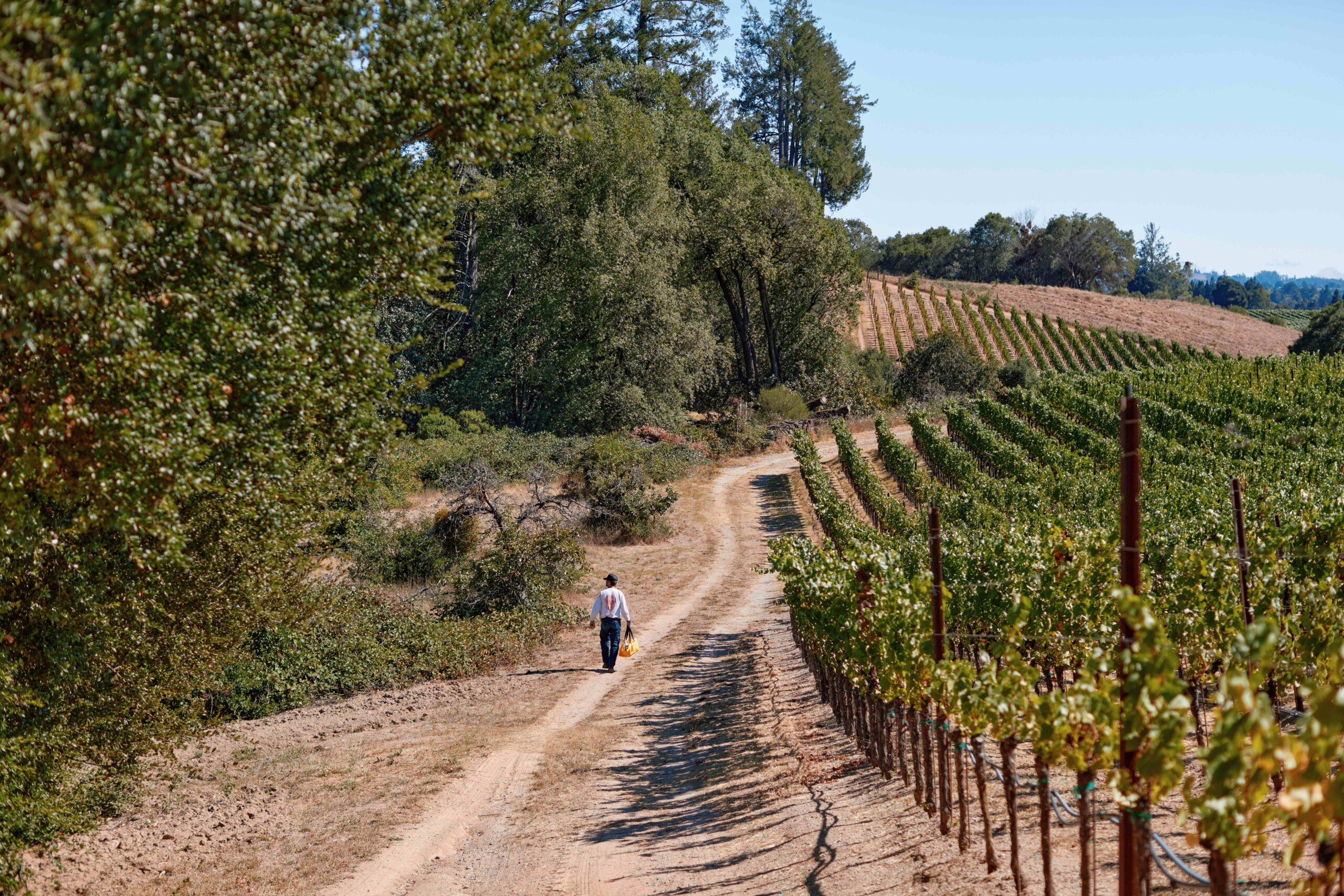
On the largely anonymous and cryptic Bardos website, Blackshear and Brown pay tribute to other notables who’ve inspired them, voices from the past such as Walkara, the Ute chief who raided early California missions; Juan Soldado, patron saint of immigrants crossing the border (he also appears on the bright orange, yellow, red, and green Bardos labels); and even Charmian London, charismatic wife of author Jack London.
Another, more modern-day figure is Gloria Leveroni, who lives on 6 acres just east of Gravenstein Highway, sandwiched between a golf course and a vineyard. When her father bought the property in 1956, there was already an orchard, planted during Prohibition. He added more varieties: a few Greenings, Bellflowers, Golden Delicious, Rome Beauties, and Spitzenburgs.
Twenty years ago, she watched her neighbor Lee Martinelli tear out his orchard and plant a vineyard. “He told me, ‘There’s no money in apples,’” she remembers. But so far, she’s held out, despite persistent suitors asking to buy her land.
So when the Bardos guys knocked on her door one day and asked if they could revive her orchard in hopes of one day harvesting it, she was delighted. “It broke my husband’s heart to see this orchard go to waste,” she says. “I called Manzana (the 100-year-old cannery on Green Valley Road) and they said they had enough apples. They didn’t need any.”
In her fridge sits a bottle of chilled Bardos cider, perfect for a hot day, but she doesn’t drink alcohol these days. No matter—the guys have promised to bring her a bottle of cider made from her fruit one day, so she can share it with her family.
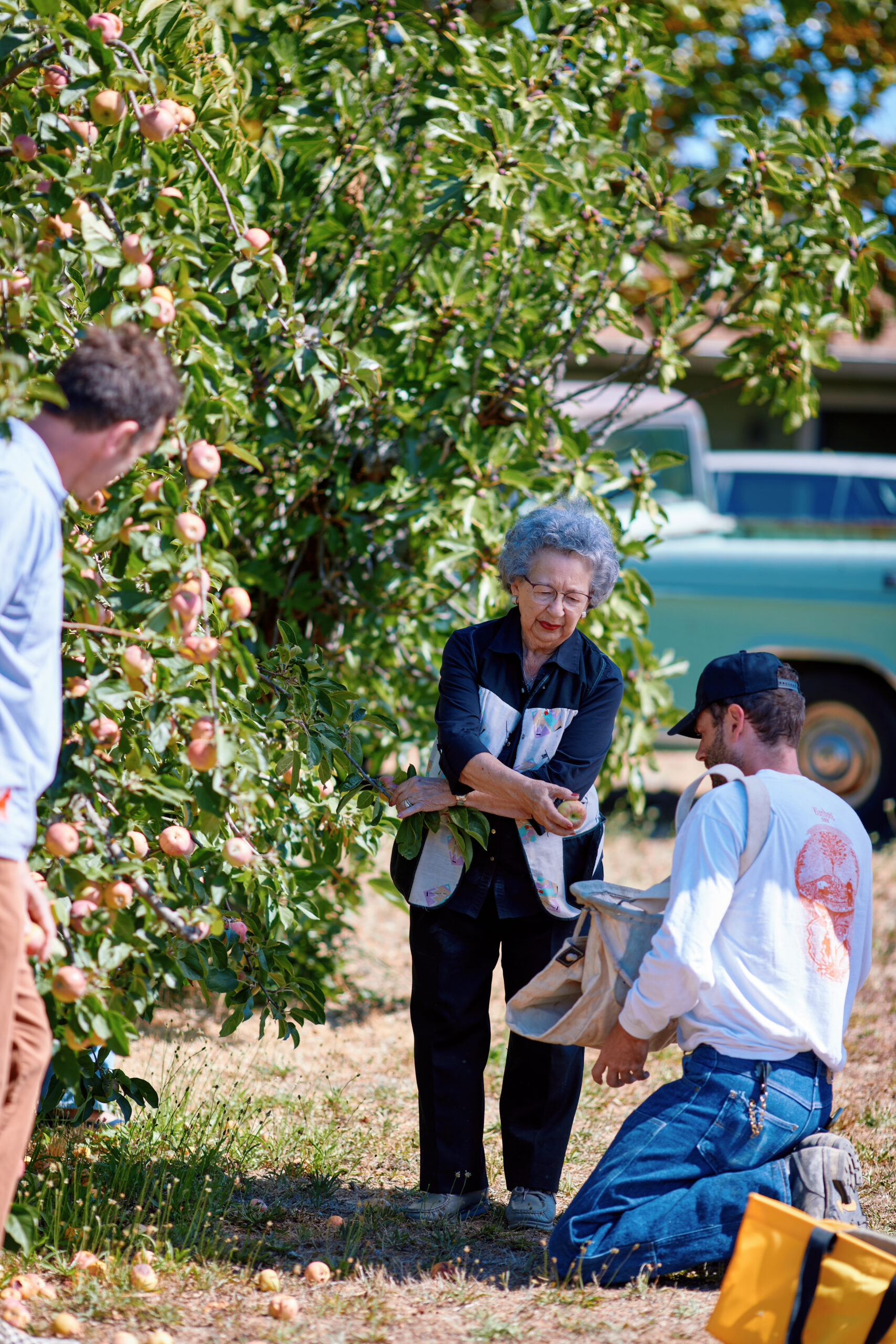
On a hot summer afternoon, with sun-warmed apples ripening on sagging branches, Leveroni comes out on her front porch to chat with Blackshear and Brown. They haven’t seen her since clearing out her orchard a year ago. “You fellas came in and cleaned up and did a good job,” Leveroni says.
Later, as the pair walk through the orchard, they see the blackberry bushes and poison oak cleared last year are already reclaiming their positions, climbing unabashedly up the old apple trees. Between are piles of oak mulch they fed through a chipper. Some of the tree trunks are half-rotted and hollowed out—almost like ghosts of apple trees—but shooting up from the roots are bright green seedlings already bearing fruit.
“When we first came here, it was like, ‘There’s an orchard in here?’ You couldn’t see it,” says Blackshear.
“It was like relief sculpture,” says Brown. They’re hoping to finally harvest the Leveroni orchard this year. But there are other orchards in the lineup, including one around the corner they call “Ann’s Orchard,” which is more abundant. Also nearby is Walker Apples, where “neglect farming” is the modus operandi.
And there are several to explore up north in Mendocino and Humboldt counties, some planted by horticulturalist Albert Etter, Humboldt County’s answer to Luther Burbank. And of course, each new location has a story.
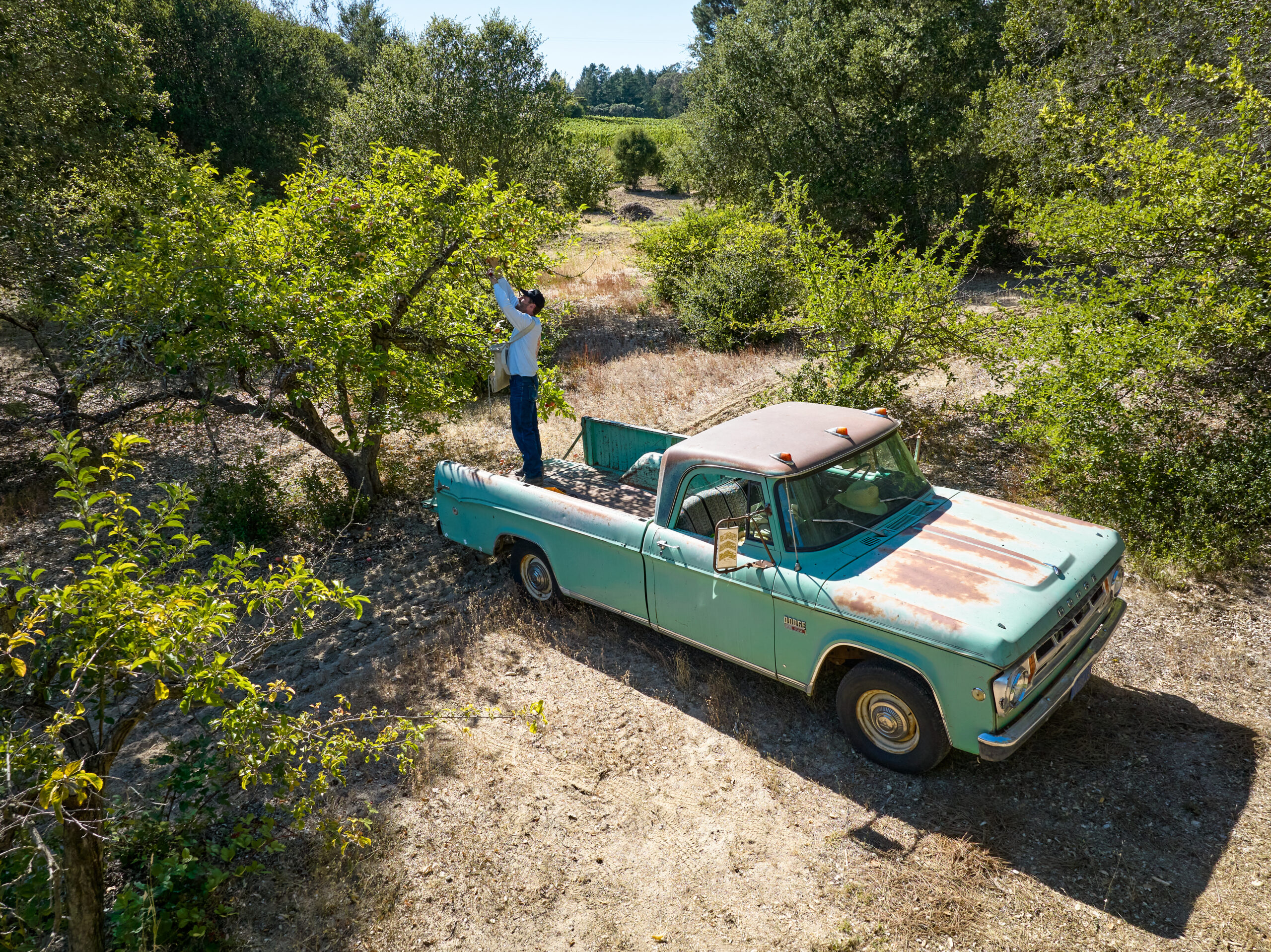
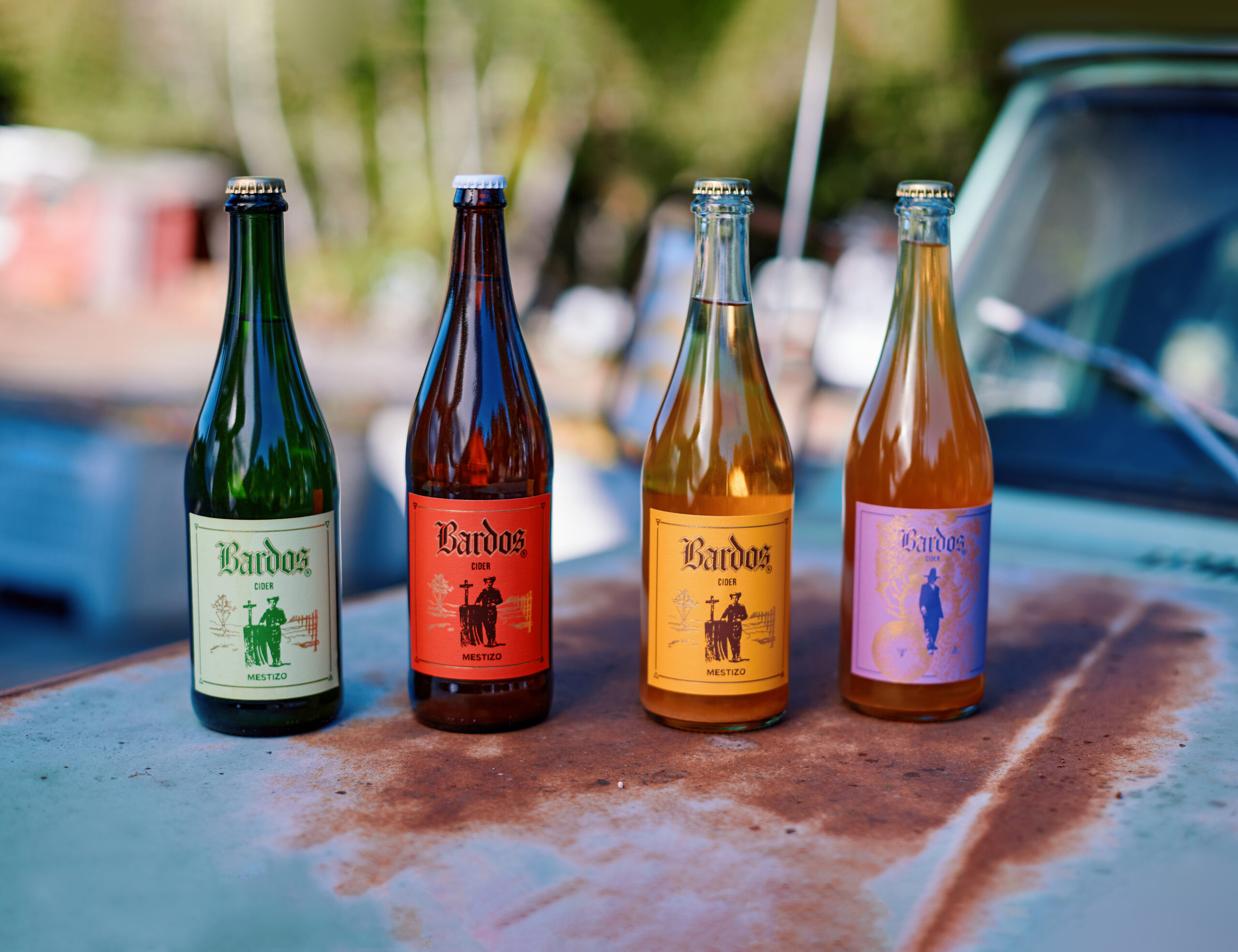
Of the two founders, Brown comes off as more nomadic and cerebral. He splits his time between Sonoma and Los Angeles, where he and a friend are renovating an 1800s-era Victorian in the middle of Koreatown. Occasionally musing about alchemy, psychic connections, and the paranormal, Brown will drop phrases like “to get that hit of mythos,” or compare picking apples in the dusty Goldridge sandy loam of west county to “picking apples at Burning Man.”
He never acts like an L.A. hipster, though he could if he wanted to, given the street cred that comes with his other career, directing music videos for bands like Arctic Monkeys and running a film production company that has made documentaries about rapper Vic Mensa and ads for Levi’s and Converse.
Blackshear, on the other hand, is more of a baseball and hockey dad, with a wife and three young kids in Sonoma. A California College of the Arts grad, he’s worked on a wide range of films. Early on, he helped make puppets for the cult film “Being John Malkovich.” His documentary short “Second Nature,” following fearless downhill skateboarders, won an award at the Sonoma International Film Festival.
For the past seven years, he has worked on a documentary chronicling a Sonoma baker obsessed with heirloom and ancient grains, and his latest screenplay is set in pre-Gold Rush-era California, following a secret message sent from President James Polk to John Fremont that led to the Bear Flag Revolt.
But more than film or even cider, what bonds the Bardos founders is history. On a stop at Luther Burbank’s Goldridge Experiment Farm, they talk about the prolific horticulturist, but also size up trees on the farm they might harvest this year.
There’s the loaded cranberry tree (“they call them ‘spitters’ because they’re so stringent, but they make great cider,” says Brown) and a towering sorbus tree (“legend has it they’re the best cider fruit ever”).
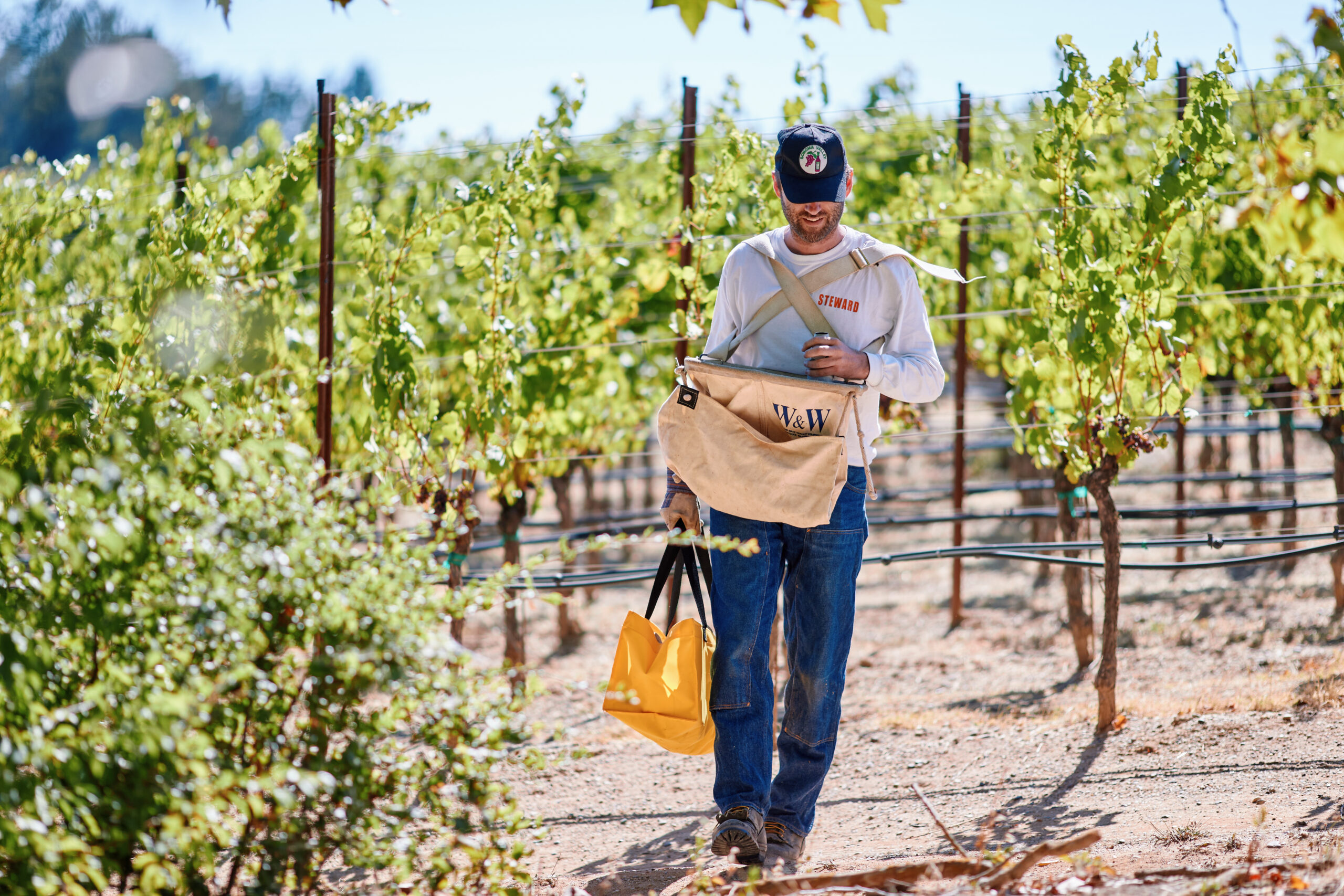
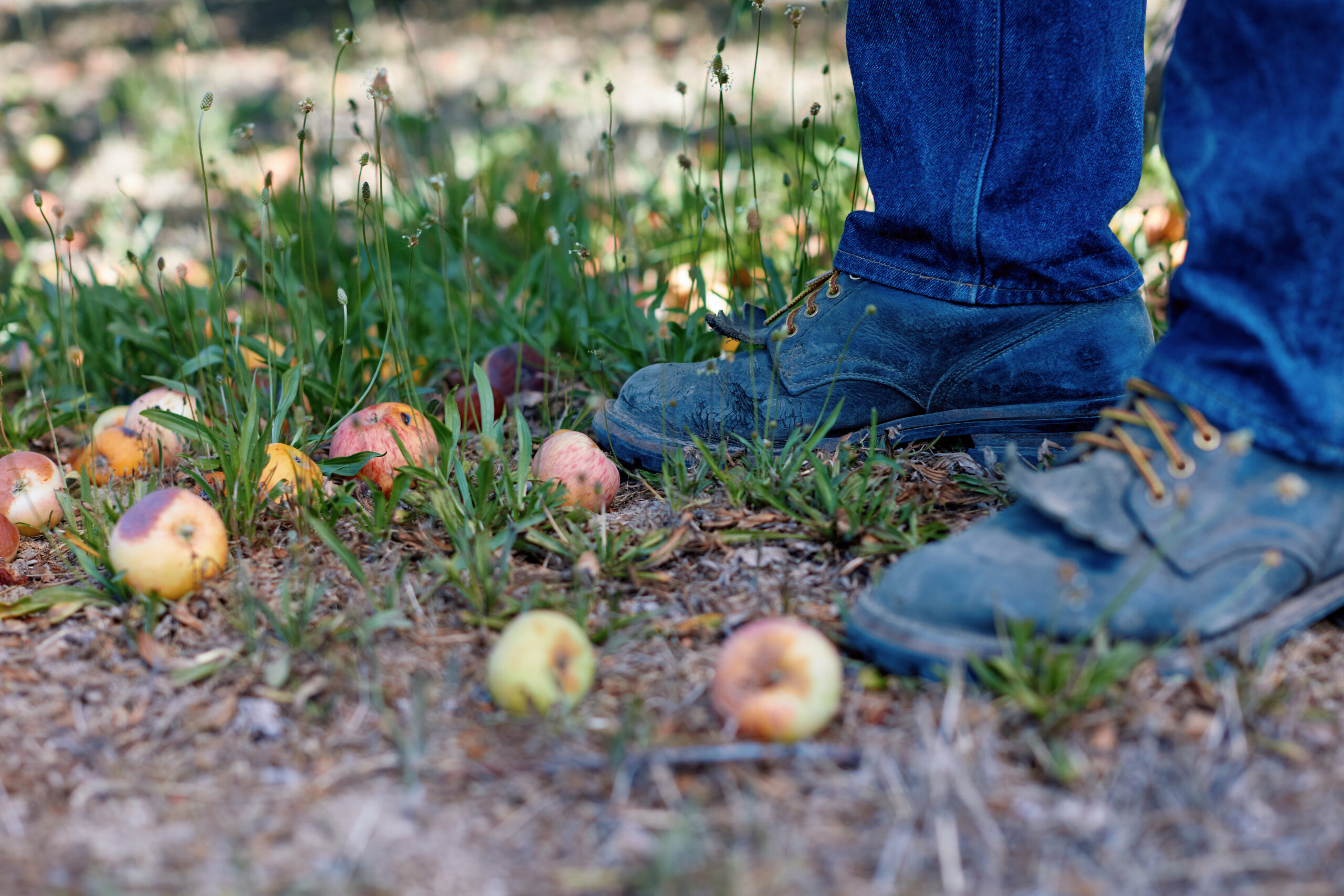
Long before Burbank arrived, and before Russian settlers brought apples to the region, the land belonged to the Southern Pomo and Coast Miwok— something Brown and Blackshear are determined to make sure no one forgets. It’s a commitment that extends far beyond California’s borders.
Brown was recently in Alaska filming a series of grant-funded, short documentaries about health care challenges facing the local Indigenous population. He’d only been there a few days and was already finding a parallel between his two projects.
“We’re constantly dealing with these narratives about, ‘Oh the First Nation people, this is what they were doing.’ No, this is what they are doing. They’re still here,” he says by phone from a cultural center in Anchorage, as drums beat in the background. “It’s the same with the apple trees. We can save this shit. And in saving it, we can present a different paradigm to people so they can see the abundance around them, instead of the scarcity. There’s this cider revival going on and that’s cool, and everyone wants to plant these different cider varietals—but also, look around you at what’s already there.”
Five years after it started, the story of Bardos is still a moving target, as transitory as its name, which borrows from the Tibetan concept describing the liminal space between death and the afterlife. It’s a perfect metaphor for the passage from gnarly old trees and stubborn apples to the ghostly and alcoholic spirit world of cider.
It’s also a great parallel to the story of two guys drifting between a passion project and a thoroughly vetted business plan. Blackshear admits, “We’ve been working hard for not much money. We’re not exactly raking in the dough.”
It’s something they’ve been talking about quite a bit as the next harvest approaches. “Usually, people will start a project like this after working for another company that does the same thing,” Brown explains. “You veer off and do your own thing. We just dove in with no business experience whatsoever in this industry. It was just handshake deals and an underground operation.”
It’s something Darek Trowbridge noticed when he first met the pair, taking them under his wing in the cellar. “They were a couple of artists,” he remembers. “They definitely weren’t businessmen, because businessmen come around and they talk differently.” Business folk, Trowbridge explains, “tend to focus more on the math.”
The next few years will be a test to see if Brown and Blackshear can carve out enough of a niche in the fast-growing natural cider business. So far, distribution has been handled mostly by natural wine distributors. You can find Bardos in bottles and kegs in small pockets as far away as Maine and Texas. In California, Bardos is poured in most Los Angeles and Bay Area natural wine bars. In the North Bay, it’s at Jack’s Filling Station in Sonoma, Miracle Plum in Santa Rosa, and Shanachie Pub in Willits.
One of the main goals now is to scale upward and create new labels. “And we’ve gotta get it into cans because that’s what people are asking for,” Brown says.
To take those next steps and scale the business “without selling out in the way that our generation was so afraid of,” Brown says, they’ve recently brought on two new partners: Blackshear’s wife, Jackie, who is good with numbers and business analytics, and Brown’s brother Evan, who is good at connecting with farmers and “knows about trucks and all that stuff.”
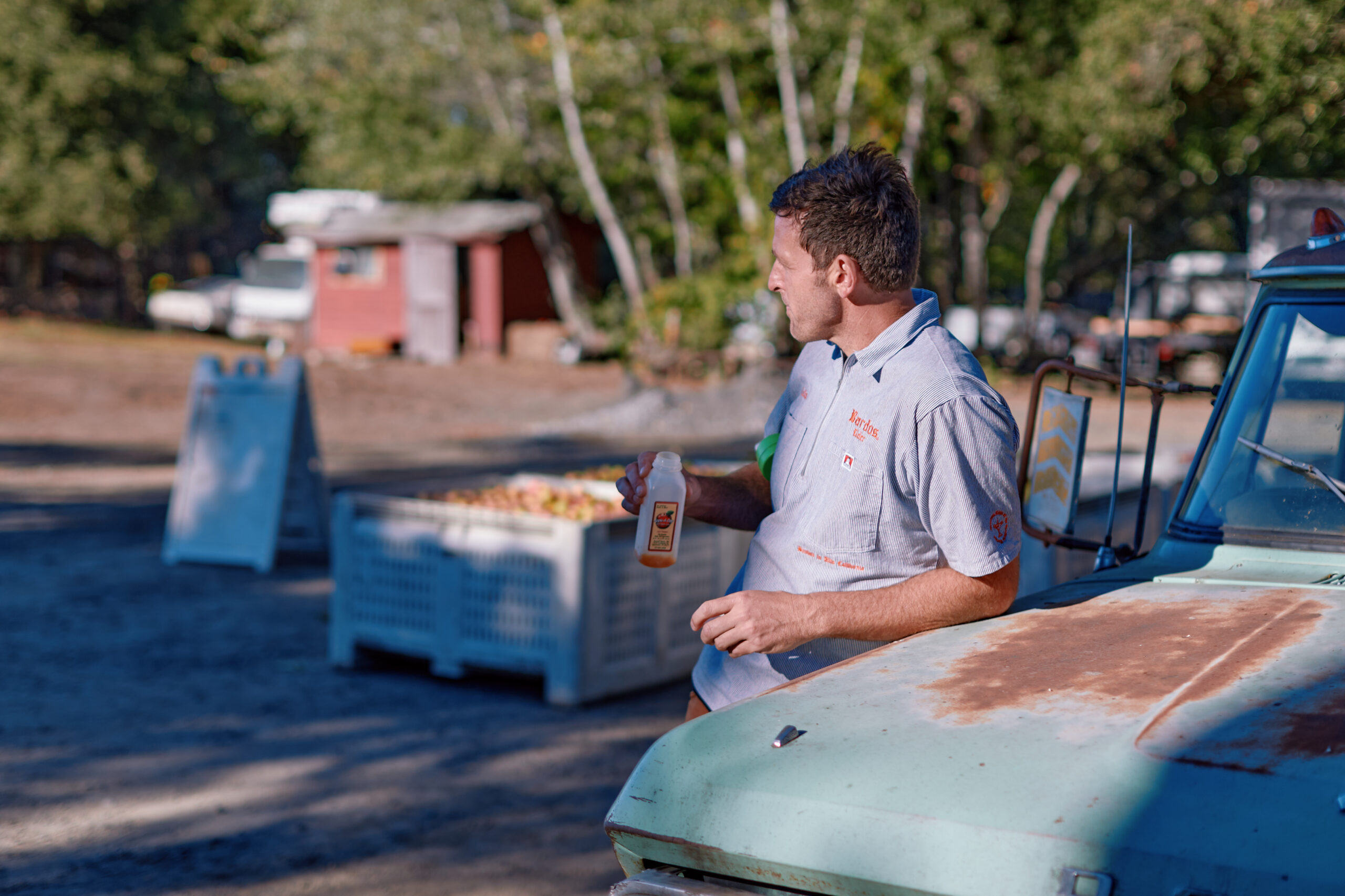
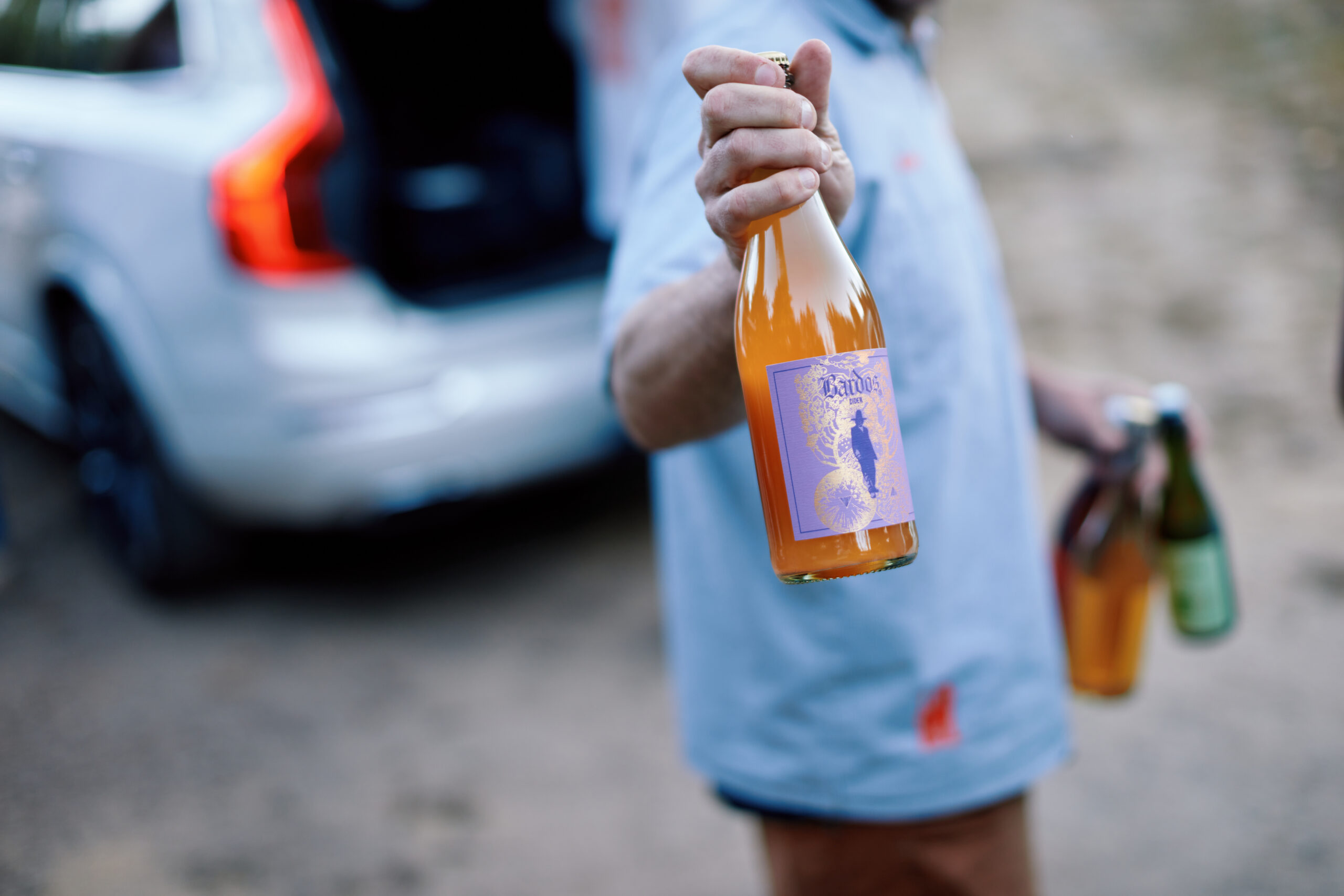
The business component is something Brown and Blackshear can no longer avoid. “We’re working on a business plan,” says Blackshear. “It’s all kind of painful, but really important.”
A few weeks later, with harvest fast approaching, Brown and Blackshear are busy planning a quick run up north to check out an orchard they might pick, east of Garberville in Humboldt County.
Blackshear points out a scan of a yellowed newspaper article about an Indigenous woman, Cheae Woods, who once lived there—one more thread in the narrative that informs their work. Woods was kidnapped during an attack on her tribe and lived the rest of her life as the wife of the man who took her away from her family. She is buried in a small cemetery on the property. And there are also rumors that gentleman outlaw Black Bart once robbed a stagecoach a few miles away. For years, people have searched for his treasure in and around the old apple orchard.
“It’s the history of the land,” says Blackshear.
“There are people in the terroir.”
Bardos Cider, bardoscider.com
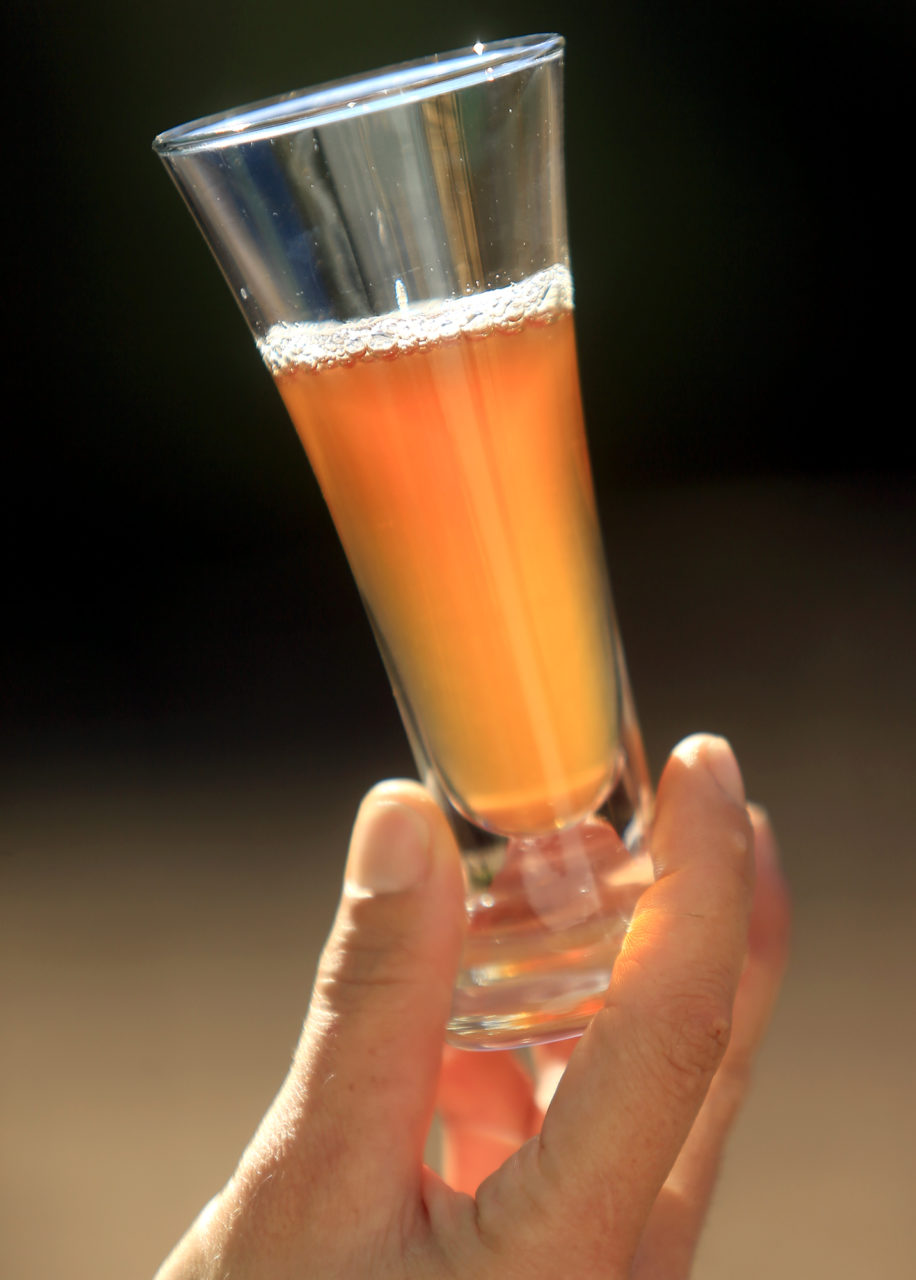
Old-School Vision
More small-batch Sonoma hard ciders made with heirloom apples.
Tilted Shed
Married cider-makers Scott Heath and Ellen Cavalli run this mom-and-pop shop, farming 120 varieties of apples and pears, making everything from single-variety ciders to co-ferments with whole plums, blackberries, and grapes. 7761 Bell Road, Windsor. tiltedshed.com
Eye Cyder
A genius in the cellar, Eric Sussman, who also makes wine for Radio-Coteau and County Line Vineyards, loves to experiment with blending local apples with redwood tips, hops, oro blanco peels, blackberries, plums, quince, and feijoa. 2040 Barlow Lane, Sebastopol. eyecyder.com
Ethic Cider
Harvesting from their nearly 5-acre Apple Bottom Farm in Sebastopol, owners Ned and Michelle Lawton make heirloom single-orchard cider blends and co-ferments with raspberries, blackberries, pears, and crabapples. 8490 Occidental Road, Sebastopol. ethicciders.com


